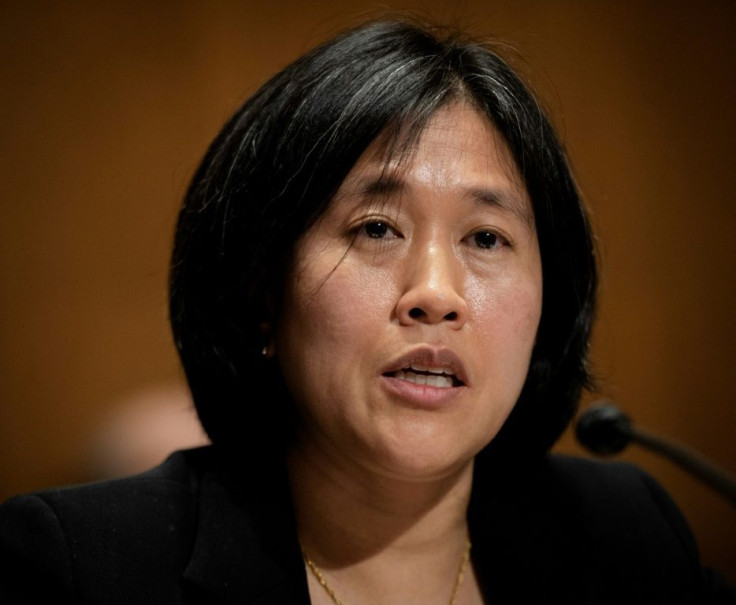US Trade Pick Tai Defends Use Of Tariffs
US Trade Representative nominee Katherine Tai on Thursday defended the use of tariffs as a valid negotiating tool and vowed to strictly enforce existing trade agreements, including with China.
She also stressed that she would aim to repair trade relations with American allies which suffered under the "America First" hardline policies of former president Donald Trump.
"Tariffs are a very important part of our fair trade remedies toolbox," Tai told the Senate Finance Committee during her nomination hearing, signaling the new US team had no plans for an about-face from the Trump administration's aggressive actions.
She indicated the Biden administration might keep in place steep tariffs in the steel and aluminum imports imposed by Trump.
"We have to acknowledge that we have ... a very significant global marketplace problem in the steel and aluminum markets that are driven primarily by China's overcapacity," Tai said. "But it's not just a China problem."
Tai, who unlike some of President Joe Biden's cabinet picks has full-throated support from Democrats and Republicans as well as the business community, has long experience with trade negotiations.

Tai, whose parents were born in China, said she would work to ensure that China meets its commitments under a January 2020 trade accord between Beijing and Washington.
Trump signed the deal with China after a bruising trade battle that saw tariffs imposed by both sides.
While Tai stressed that Beijing must keep its promises, she said she supports a "holistic review on China" and US-China strategy.
"We can't compete by doing the things China does, so we have to figure out how we compete, marshaling all the tools and resources that we have in the US government," she said, including "reshoring" jobs and boosting domestic manufacturing.
Alarmed by global shortage of semiconductors, which has forced a slowdown in US auto production, the Biden administration is shining a spotlight on US supply chains, including key goods like chips and rare earths largely produced in China.

While the semiconductors shortfall "is an area where there's a lot of focus right now," Tai said the goal is really about "how we more strategically shape our supply chains."
And "semiconductors are just a part of what we have to compete with."
Responding to the wide range of questions, down to pulse crop tariffs in India, the Yale and Harvard educated lawyer also said she would make it a priority to enforce the regional trade pact that Trump signed with Mexico and Canada.
Tai helped negotiate the US-Mexico-Canada Agreement in 2019 as trade advisor to the House Ways and Means Committee, to include more stringent labor and environmental standards.
And Tai pledged to seek a solution to the costly, longstanding fight over subsidies for Boeing and Airbus.
The 16-year-old trans-Atlantic conflict over government aid to the competing aircraft manufacturers has seen Brussels and Washington each impose punitive tariffs, including US duties on a record $7.5 billion in European goods authorized by the World Trade Organization in 2019.
"I would very much be interested in figuring out, pardon the pun, how to land this particular plane because it has been going on for a very long time," she said.
Tai also agreed that the WTO should be reformed, a view shared by her predecessor Robert Lighthizer, who effectively paralyzed the trade body's dispute settlement system.
Each side has won WTO rulings in the aviation dispute that authorized punitive tariffs.
The Biden administration earlier this month said that for now it will keep in place the 25 percent tariffs on European products like wine, cheese and olive oil, and 15 percent tariffs on Airbus.
In January the US imposed new duties on aircraft parts, wine, cognac and brandies from France and Germany.
The EU in November levied additional customs duties on $4 billion worth of American products including Boeing planes and also farm produce, such as wheat and tobacco, plus strong alcohol and chocolate.
© Copyright AFP {{Year}}. All rights reserved.





















